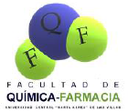Executive Secretary

7th International Symposium of Pharmaceutical Sciences
VII SICF
Abstract
Environmental exposure to genotoxic agents represents a major health concern for modern society. DNA damage could lead to mutations, which accumulative effect is closely related to degenerative and lethal diseases, such as cancer. Because of their structural and chemical diversity natural products play a fundamental role in pharmaceutical sciences for novel drug discovery. The present review article focuses on pre-clinical studies done with some species from Cuban flora that have been tested with positive antigenotoxic properties against different genotoxins. Special emphasis regarding molecular mechanisms suggested, from antioxidant activity to DNA repair modulation, a critical discussion of the state of art and the perspectives in the use of these plants as a new and promising strategy for genoprotection in the 21st Century are included.
Resumen
Environmental exposure to genotoxic agents represents a major health concern for modern society. DNA damage could lead to mutations, which accumulative effect is closely related to degenerative and lethal diseases, such as cancer. Because of their structural and chemical diversity natural products play a fundamental role in pharmaceutical sciences for novel drug discovery. The present review article focuses on pre-clinical studies done with some species from Cuban flora that have been tested with positive antigenotoxic properties against different genotoxins. Special emphasis regarding molecular mechanisms suggested, from antioxidant activity to DNA repair modulation, a critical discussion of the state of art and the perspectives in the use of these plants as a new and promising strategy for genoprotection in the 21st Century are included.
About The Speaker

Prof. Fabiana Fuentes León






